Review byProf. Alexandre Fonseca; 24 de Outubro de 2010
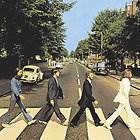
"'Abbey Road' é um álbum sem vida". Quem disse isto? John Lennon. Depois de passar muito tempo excomungando o homem que, juba leonina e terno branco impecável, puxa a fila indiana na famosa foto que embala o canto-de-cisne dos Beatles, descobri um certo sentido naquela aparente blasfêmia: "Abbey Road" é um disco-vampiro. Como um Nosferatu que se alimenta das nossas almas e emoções e, assim, preserva sua eternidade. Um parasita de sentimentos. Um vírus que necessita instalar-se em células hospedeiras para roubar-lhes o metabolismo.
"Abbey Road" instalou-se em meu coração. E não há anticorpos ou antivirais que de lá o retirem. Porque, como muitas espécies de virus, é um album mutante que, a cada nova audição, revela detalhes, nuances, experiências sensoriais antes despercebidas.
Foi o segundo disco dos Beatles que adquiri. Antes dele apenas uma coletânea com os hits da fase pré-"Sgt. Pepper's". Comprei-o em vinil na saudosa Poli-Discos, do Roberto, na esquina da Padre Luna com a Silva Jardim. Custou-me quinze mil cruzeiros, quantia que consegui com a venda de um relógio furtado de minha mãe. Deste pecado definitivamente não me arrependo.
Depois dele, minha discografia ainda ganharia outras pérolas dos Beatles: a riqueza melódica de "Rubber Soul", o glamour de "Sargeant Pepper's Lonely Hearts Club Band", a alegria juvenil de "A Hard Day's Night", o experimentalismo psicodélico de "Revolver", a incrível diversidade estilística do "Album Branco". Ganharia também grandes albuns de outras bandas e artistas brasileiros e estrangeiros que ajudariam a compor minha identidade musical. Nenhum deles me marcou tão profundamente quanto "Abbey Road".
Ainda está vivo em minha memória o dia em que, chegando em casa ofegante, depois de atravessar em correria as ruas que separavam a loja da minha casa, tranquei-me no quarto e pus a bolacha preta na vitrola, não sem antes gastar alguns minutos admirando a capa, cuja imagem exerceu - e ainda exerce - um efeito hipnótico sobre meus olhos. Ainda desconhecia os mistérios que nela se escondiam: as "pistas" sobre a suposta morte de Paul McCartney, sobre a iminente dissolução da banda e - como viria a compreender mais tarde - sobre o fim da utopia sixtie. À primeira vista, não havia nada disto: apenas os Beatles, despojados, sem disfarce, sem os terninhos do início da carreira, sem os coloridos uniformes da banda de Sgt. Pepper, cruzando a Estrada do Mosteiro. O mosteiro onde aqueles quatro monges viveram trancafiados por oito anos, tecendo canções e... sonhos.
À fricção da agulha com o vinil, seguiram-se quarenta e sete minutos e vinte e quatro segundos de "iluminação auditiva" que deixaram-me em completo topor. Era como se o tempo físico houvesse sido suspenso para mim. Penetrara em outra dimensão espaço-temporal. Um Nirvana sonoro. Uma sessão de psicanálise transpessoal que expôs as tripas do meu inconsciente. Uma viagem lisérgica sob os efeitos da mais poderosa substância alucinógena que se conhece. Metáforas - nem mesmo as mais exageradas - não dão conta de representar a multiplicidade de sensações que experimentei na ocasião. Sequer as recordo de todo. Não me sinto em condições de descrevê-las.
Canção a canção, minha vida era vampirizada por aquele virus de vinil. A sensualíssima "Come Together", com seu enigmático jogo de palavras tipicamente lennoniano, exortando, pela última vez, o binômio libertação sexual/emancipação política idealizado pela contracultura sessentista. A melodia cândida de "Something", considerada a mais bela canção de amor dos últimos tempos por ninguém menos que Frank Sinatra que, para o infortúnio de George Harrison, atribuiu-a equivocadamente à dupla Lennon & McCartney. O humor negro da marcha pop "Maxwell's Silver Hammer". A explosão de voz na bluesy "Oh! Darling". A ode inocente à amizade e à liberdade em "Octopus's Garden", de levada country-rock. E o lado A se vai abruptamente com "I Want You", uma montanha-russa proto-heavy-prog de guitarras e sintetizadores. Os acordes bucólicos do violão de Harrison abrem o lado B, saudando a chegada do Sol que realça sorrisos e derrete os gelos dos corações. Era "Here Comes The Sun". E as portas do éden se abriram para mim ao ouvir três anjos entoarem em uníssono o canto etéreo de "Because". Era o bastante. Já me achava completamente nocauteado. Rendido. Infectado.
Mas havia mais... ou melhor, faltava o golpe de misericórdia. "The Big One": uma sequência quase ininterrupta de dezesseis minutos e treze segundos da melhor música que até hoje tocou meus ouvidos. Jamais ouvi nada igual. Ali estava um daqueles instantes em que os seres humanos aproximam-se da ambicionada perfeição divina. Em retrospectiva, creio que aquela foi a única vez em que sinceramente acreditei na existência de um Ser Superior do qual teríamos sido feitos à imagem e semelhança. Anos mais tarde, Dr. Freud me convenceu de que somos deuses de prótese. E, por Nietzsche, percebi que naquele medley que fecha "Abbey Road", os Beatles atingiram o cume da sua condição humana. Tornaram-se "Além Homens". Humanos... demasiado humanos.
Lembro de ter ouvido o medley com a respiração suspensa. O que era aquilo? Em meio a uma colcha de retalhos de melodias, um entra e sai instantâneo de personagens perfilando histórias cotidianas sobre gente solitária, como no livro de contos de Carlos Brunno: dinheiro esvaído, mágicas sensações que se perdem, doces sonhos que vêm e vão, crianças boazinhas candidatas ao paraíso, grilos cantando o amanhecer, um velho indigente mendigando esmolas, a prostituta manchete do jornal sensacionalista, a garota que veio pela janela do banheiro, uma canção de ninar, solos de bateria, duelos de guitarra e... quando meus pulmões pareciam querer explodir implorando por ar... o derradeiro verso, o epitáfio, a frase-síntese de toda a história dos Beatles e de sua geração, um pedaço de sabedoria popular universal: "e no fim o amor que se ganha é igual ao amor que se oferta".
Em frangalhos, como que recem saído de uma catarse sexual tântrica, ainda me deixei surpreender com a pequena coda: um fragmento perdido no final do disco em que Paul zombeteia de Sua Majestade. Eles eram os verdadeiros reis.
Lennon, de novo ele, menosprezava o medley: uma série de "pedaços de canções jogadas a esmo", afirmou. Mais uma vez demorei a lhe dar razão. São canções jogadas a esmo sim!. Tal qual nossas vidas soltas, sem rumo, sem destino, atravessando estradas e estradas, guiadas tão somente pelo Caos entrópico.
É isto: em "Abbey Road", os Beatles fizeram "música quântica".
PS: três das canções beatle mais regravadas por outros artistas saíram da forja de "Abbey Road". "Come Together" é uma delas. É figurinha carimbada no repertório de várias bandas, incluindo as valencianas que, entretanto, preferem o tratamento mais "hard rock" dado à ela pelo Aerosmith. Sem lhe tirar o mérito, considero que na versão da banda de Steven Tyler e Joe Perry alguns dos detalhes mais interessantes do arranjo original se perdem: o baixão sinuoso de Macca, a slide incisiva de George no solo de guitarra e o acompanhamento vocal de Paul, simulando voz grave, nas estrofes de passagem.
"Here Comes The Sun" recebeu belas interpretações de Peter Tosh (uma das minhas prediletas), Nina Simone, Richie Havens e uma dispensável versão em português de Lulu Santos. E a campeoníssima "Something" já passou pelas vozes de Frank Sinatra, Elvis Presley, Ray Charles, Joe Cocker, James Brown, Smokey Robinson e Gilberto Gil, dentre muitos outros.
Há também versões extra-beatles para outras músicas menos conhecidas do disco. Tetê Espíndola fez um bom trabalho com "Because". Mas Elis Regina está simplesmente insuperável em "Golden Slumbers", assim como Joe Cocker em "She Came in Through The Bathroom Window" (veja e ouça abaixo). Apropriaram-se das canções maravilhosamente e as reinventaram. A eles, Paul McCartney deveria ter enviado telegramas de agradecimento.
Infelizmente (ou não), "Oh! Darling", uma das canções que mais aprecio em "Abbey Road", é uma das menos escolhidas pelos intérpretes. Reconheço, porém, que McCartney ultrapassou todos os limites da voz humana na gravação original e nem mesmo ele se atreveu a cantá-la novamente. Mas, recentemente, ouvi um cover feito por uma banda de Volta Redonda, chamada Jimmy Jimmy and The JazzBreakers, que muito me agradou.
PS (2): há algo que me revolta em "Abbey Road". Saber que foi o último disco gravado pelos Beatles e eles nunca estiveram tão bons, nunca tocaram tão bem, nunca cantaram tão bem. O que viria depois? Seriam capazes de fazer algo superior se continuassem juntos? Era como se mandassem um recado a todos: "Aí está. Para nós, o jogo acabou. Agora é com vocês. Façam melhor... se puderem".
PS (3): "Abbey Road" foi lançado em 1969, em plena era dos "albuns conceituais" e das "operas-rock" e, embora não seja um deles, prestou-se a muitas "análises conceituais". Uma das que acho mais interessante é a que o vê como um "manual de como conquistar a mulher amada". Senão vejamos. Tente seduzí-la suavemente, à moda antiga, aos versos de "Something". Frases do tipo "em algum lugar no seu sorriso, ela sabe que não preciso de nenhuma outra amante" podem ser irresistíveis. Mas cuidado!!!! Mais tarde, ela talvez lhe troque por seu melhor amigo... rs rs rs. Deixe-a invadir seus aposentos como em "She Came in Through The Bathroom Window". Leve-a a um passeio matinal para ver o sol nascer, ouvindo "Here Comes The Sun". Faça-a dormir, cantando "Golden Slumbers" aos seus ouvidos. Conte-lhe sobre a infinitude do seu amor, via "Because". Seja insistente e apenas repita "I Want You", "I Want You", "I Want You". Se tiver pulmões e garganta, grite desesperadamente, como Paul em "Oh Darling!", que não é ninguém sem ela e nunca lhe fará mal. Ou, simplesmente, seja ousado e convide-a para a cama: "Come Together, right now, over me."
Se isso tudo falhar, faça como eu...
... desista...
...mas tenha a certeza de que "in the end..."
"...the love you take is equal to the love you make"
PS (4): alguma banda de Valença toparia o desafio de reproduzir "The Big One", o medley do lado B, na íntegra?
Postado por Prof. Alexandre Fonseca às 06:09
4 comentários:
- Louco não posso, são não me digno; 24 de outubro de 2010 10:26
Que texto bom, querido, das finas ironias às tristes constatações engraçadas - sim, me fizeram rir, rs, a música quântica etc. No mais, sempre bom reencontrar poesia em paixões musicais que nunca se esgotam, porque, se esgotassem, levariam junto as nossas referências mais sagradas e nossas perdições mais profanas, rs. Bjs, bom domingo!
- Anônimo; 20 de setembro de 2011 14:01
“Sem a música, a vida seria um erro” – e ainda que esta frase tenha sido concebida provavelmente sob a influência de Wagner, ao ouvir os Beatles não nos seria difícil concebê-la, tal como igualmente corroborá-la – afinal, os Beatles encarnaram, em sua história musical (a qual veio a ser essencial à musicalidade mundial), todos os “estados superiores” possíveis:o lirismo das melodias, a poesia e harmonia das letras, o ritmo dionisíaco dos acordes – todos reunidos em canções transcendentais que, através e devido à perfeição, cruzaram os limites de espaço e tempo rumo à eternidade legada apenas às obras-primas.
O quarteto de Liverpool conseguiu recuperar toda a liberdade, expressão e amor perdidos em gerações anteriores, e transpô-los para a linguagem musical. Não à toa, ouvi-los significa libertar-se do mundano e elevar-se a algum estado intermediário entre o abstrato e o concreto, entre a ilusão e a realidade, e, finalmente, entre o divino e o terreno – ainda que alguns solos e melodias nos façam crer piamente que já não fazemos parte do ordinário, e que a realidade nos foi moldada musicalmente.
Seu texto resume toda a genialidade desses quatro músicos inigualáveis, enquanto “sussurra palavras de sabedoria”, “palavras que flutuam como uma chuva sem fim”. Você fez ecoar os “sons de risos, sombras de amor” inerentes às músicas beatlenianas e me fez perceber, inclusive, que Lennon estivera certo até quando parecera errado. Fez-me recordar, por fim, do fato de que a influência e magnificência dos Beatles está “aqui, lá e em todo lugar”, e que não é só impossível fugir àquelas, como inevitável a elas se render. Um texto, afinal, à altura da banda.
Após essa leitura, não pude senão concluir que a relação e admiração para com os Beatles não é “eterna enquanto durou” - mas é, e deve ser, eterna enquanto ainda houver música.
“E aqueles que foram vistos dançando foram julgados insanos por aqueles que não podiam escutar a música.”
Por Isabela Salgado
- Prof. Alexandre Fonseca; 20 de setembro de 2011 14:06
Isabela,
Jamais, em tempo algum, pude ler palavras tão belas a respeito dos meninos de Liverpool. Dignas de uma melodia de Lennon @ McCartney. Estou chorando aqui...
- Anônimo; 20 de setembro de 2011 14:08
Ah, Alexandre, pois eu é que o digo a respeito do seu texto! Ele foi capaz de expressar todo o encanto que Abbey Road produziu e ainda produz em todo aquele que compreende, ainda que razoavelmente, a genialidade e profundidade das obras beatlenianas. E tal como as recriações e covers maravilhosamente bem elaborados das músicas do quarteto, o seu texto igualmente deveria, tal como você mencionou, receber um agradecimento pessoal do McCartney =]
Isabela Salgado
Link perdido, inicialmente em:
Abrindo a série "Meus Discos...": A ESTRADA DO MOSTEIRO
http://algumcantoemseusorriso.blogspot.pt/2010/10/abrindo-serie-discos-estrada-do.html




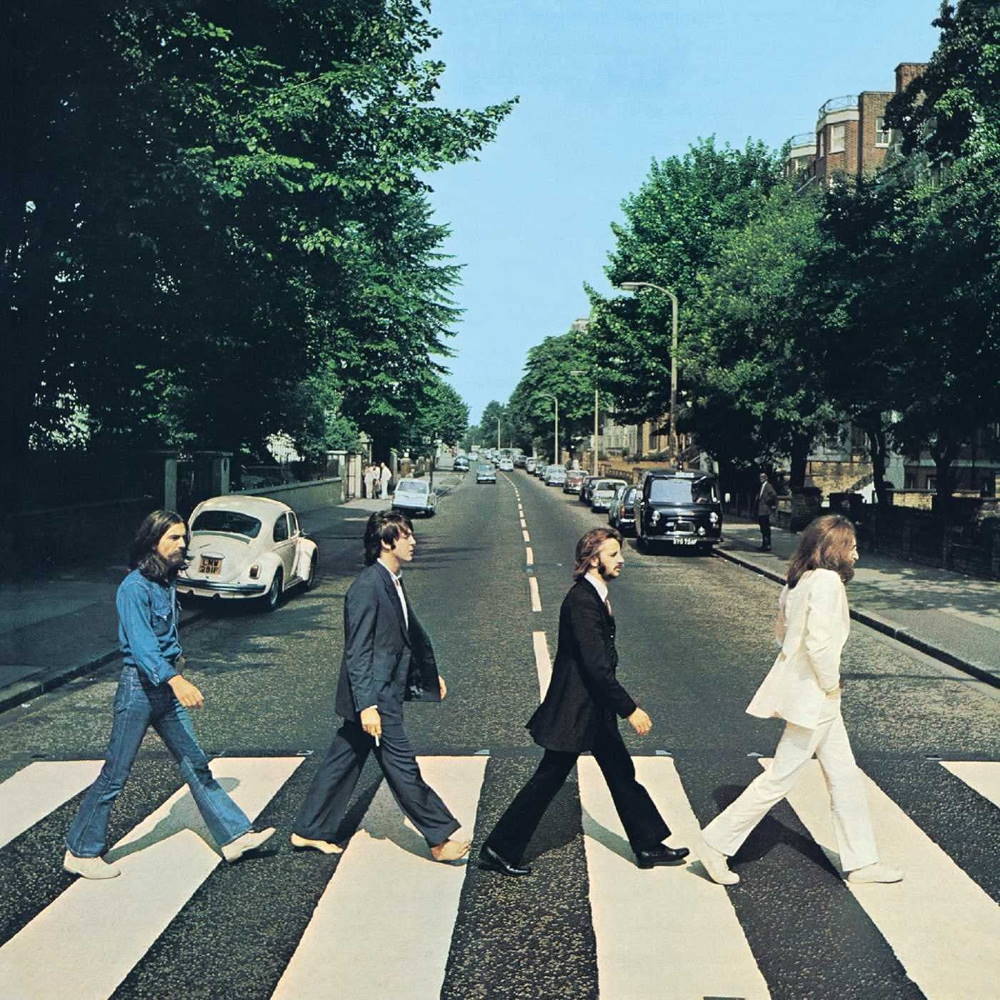
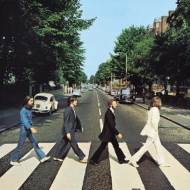




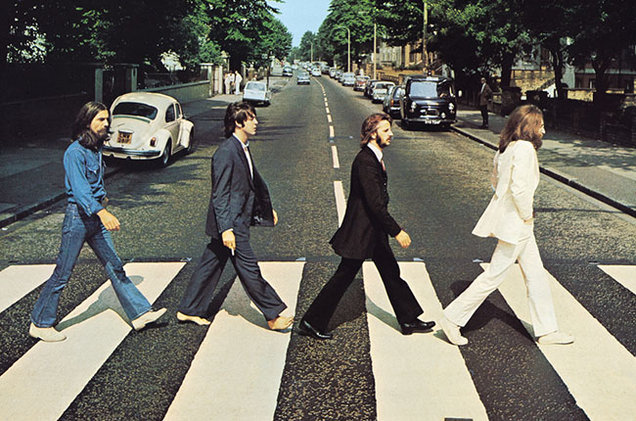
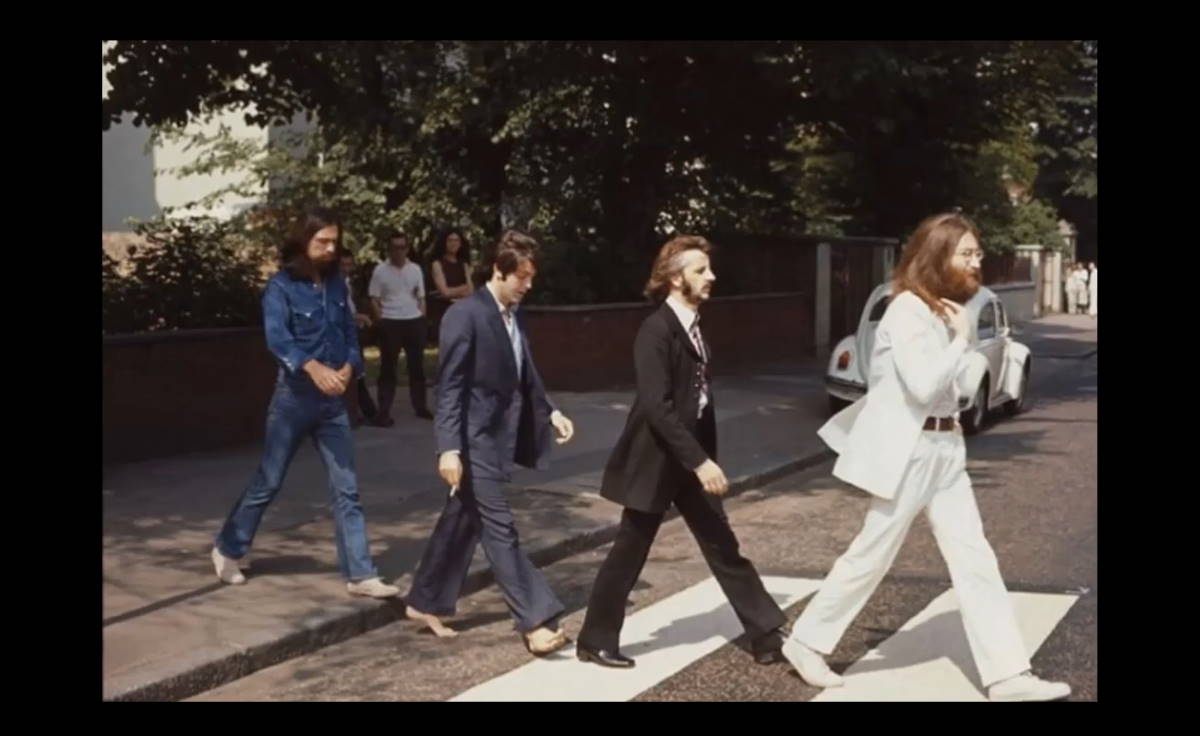 BEATLES ABBEY ROAD BUT IT'S LIVE
BEATLES ABBEY ROAD BUT IT'S LIVE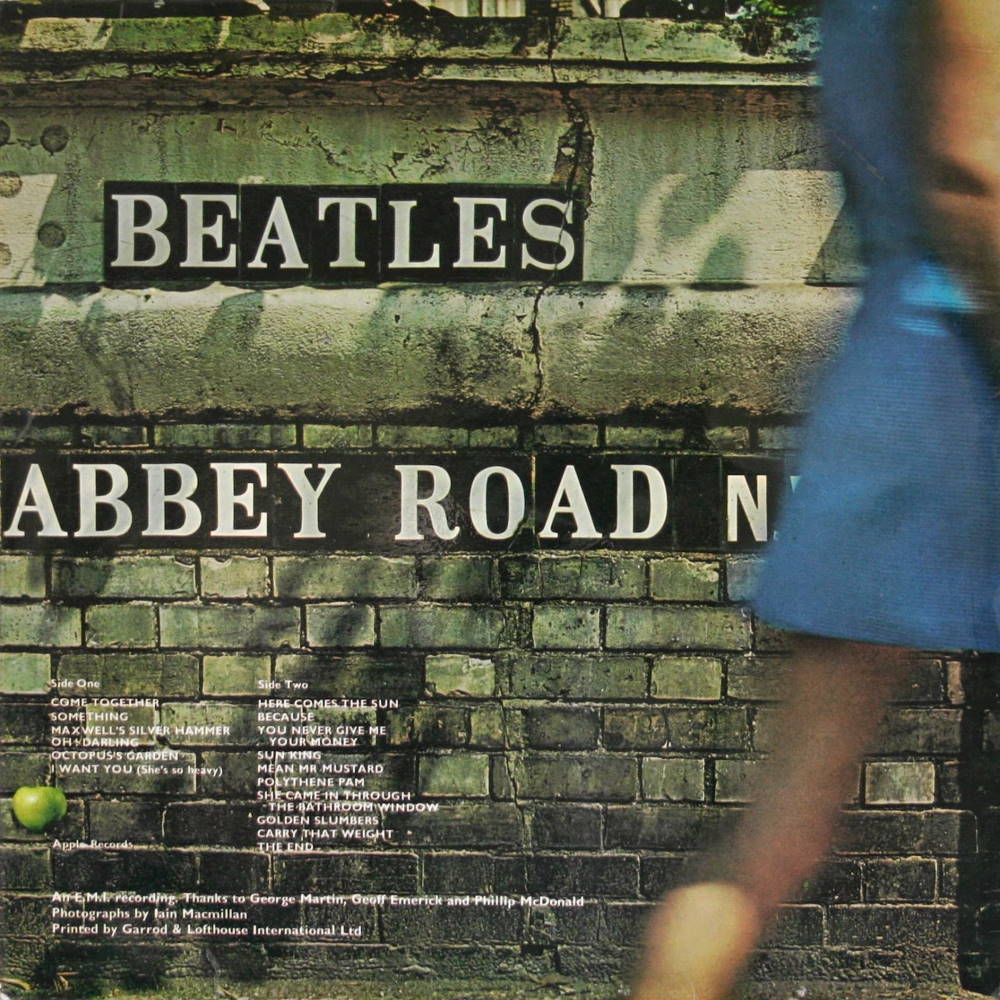 Back cover for vinyl Long Play
Back cover for vinyl Long Play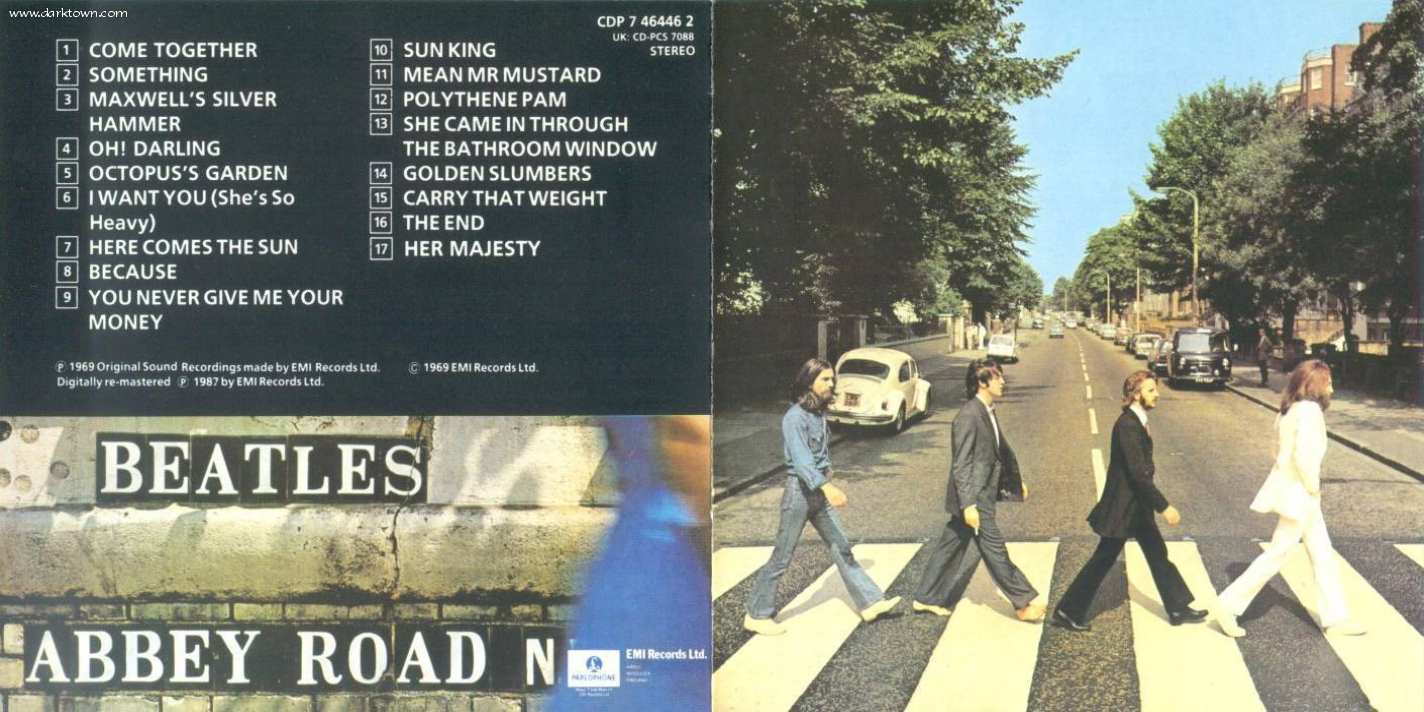 Full album cover for CD
Full album cover for CD